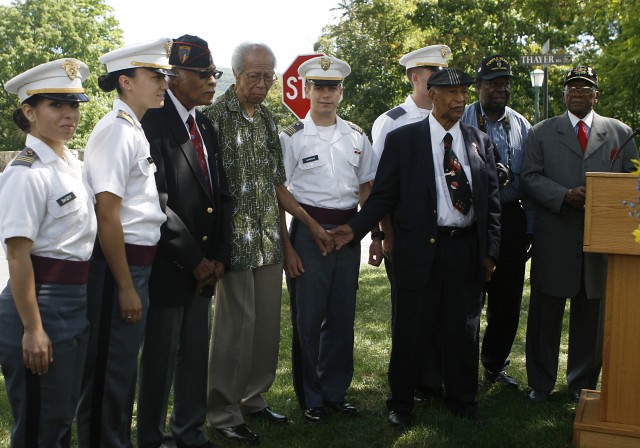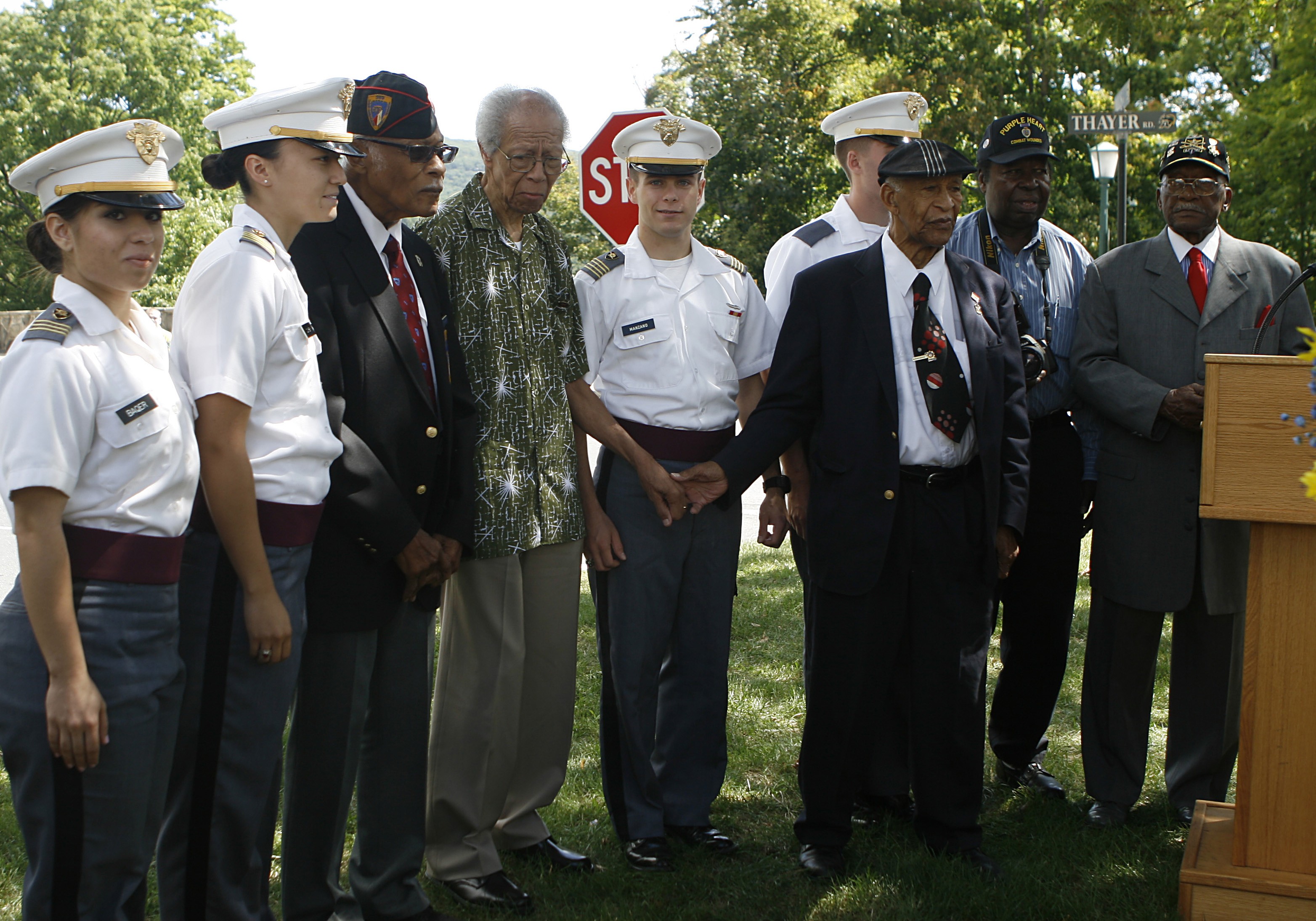WEST POINT, N.Y. (Sept. 8, 2010) -- Active duty and retired military, friends and Family gathered at West Point's Buffalo Soldier Field on Sept. 5 to recognize one of the greatest turning points in Army history at the 49th annual Buffalo Soldier Ceremony.
Surviving Buffalo Soldiers were present for the ceremony to honor the Soldiers of the 9th and 10th U.S. Cavalry Regiments, the first Congressionally-established African-American Army regiments.
Retired Air Force Col. Roy Spells, also a Tuskegee Airman, introduced the guest speaker for the event, Rev. Marvetta Walker. A 24-year Army veteran, Walker served as a chaplain in support of Operation Iraqi Freedom II.
Walker delivered a moving speech on the history of the Buffalo Soldier and encouraged the younger generation to learn more about their history and the numerous contributions they made to the Army and the nation.
"I think it is important for them to know where we, as a people came from, so that they might understand how proud we are to be who we are," Walker said.
According to Walker, the first Buffalo Soldiers were part of the 10th U.S. Cavalry Regiment, established by Congress on Sept. 21, 1866, at Fort Leavenworth, Kan. Other similar regiments were stood up during the Civil War, and after the war these units were reorganized as the 9th and 10th U.S. Cavalry Regiments.
Henry O. Flipper, Class of 1877, earned the distinction of being not only the first African-American graduate of West Point, but also the first African-American commander of troops in the 10th Cavalry. Buffalo Soldiers like retired Sgt. Sanders Matthews Jr., of Highland Falls, served at West Point and taught cadets how to ride horses at the area that now bears their name.
The Buffalo Soldiers are credited with helping to break years of segregation in the Army's ranks by participating in the Indian wars, the Spanish and Philippine-American wars, both World Wars and the Korean War. By the end of 1951, the last of the Buffalo Soldier units were inactivated and reorganized into other Army units.
"If I could hear the Buffalo Soldier today," Walker said, "he would say 'remember me: remember me when I taught you how to ride the horse but I was not able to sit down next to you. Remember me when I was fighting a war, and when I was learning how to shoot you gave me a broom instead of a rifle. But yet I became a marksman.'"
After the ceremony, Spells, Matthews and other surviving Buffalo Soldiers held a photo opportunity with Soldiers, cadets and other attendees before attending a luncheon held at Round Pond.


Social Sharing